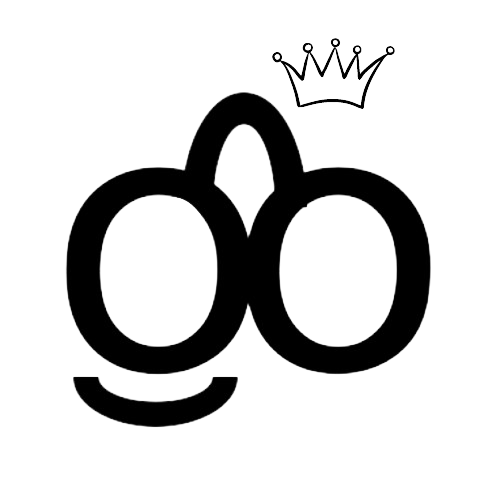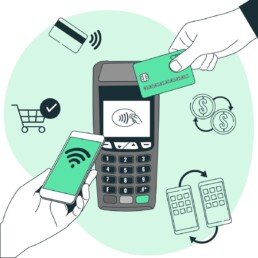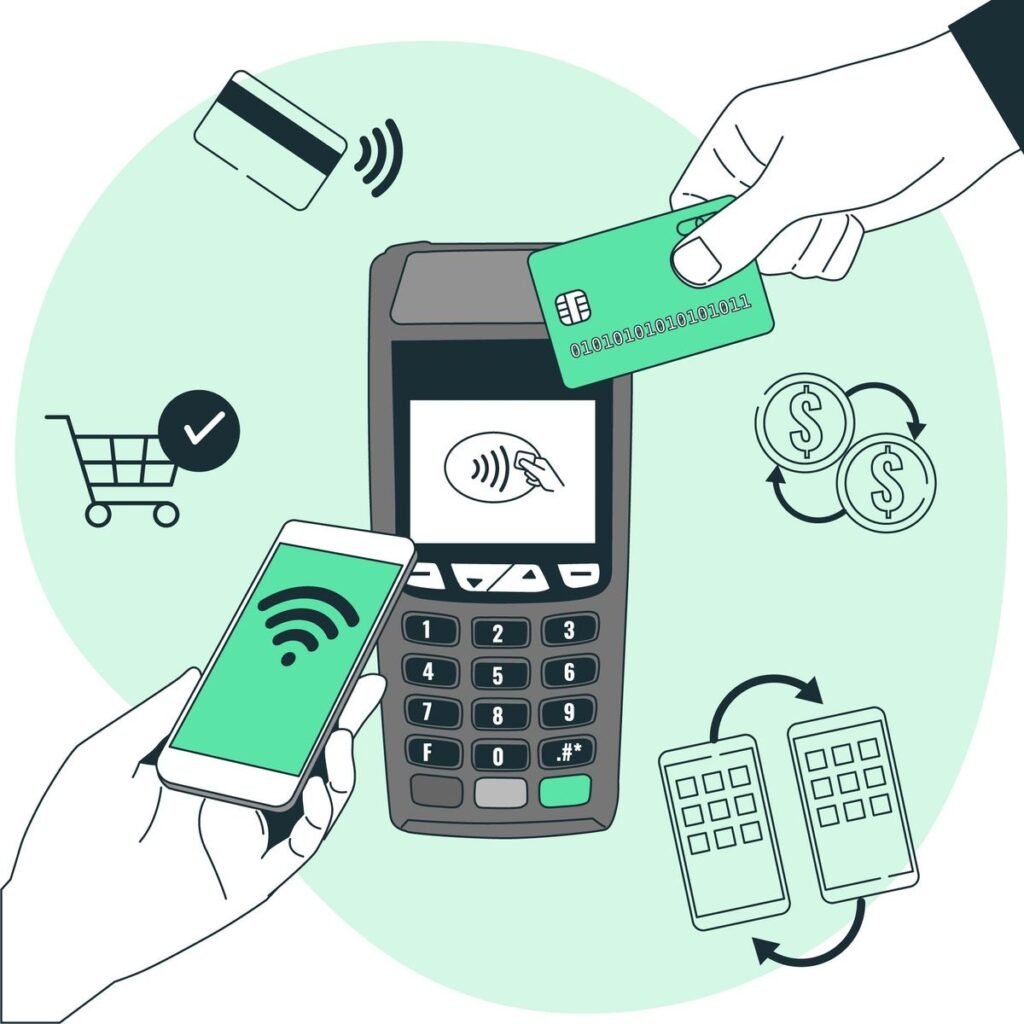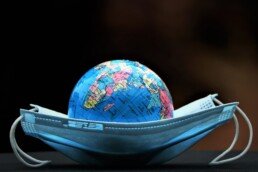NFC: The secret weapon of contactless payments
Contactless payments are the next logical phase of payments acquisition/acquiring.
Let's face it: Most of us are more introverted than we think. We push against it, deny it, and rap about being party rockers, but deep within, we would prefer if people kept their hands to themselves or their cards. We immediately imagine: I don't know where that's been.
At the height of 2020's COVID-19, Anthony Fauci surmised: I don't think we should ever shake hands again. And the reason goes beyond the easy transference/transmission of germs. It goes to the root of convenience, ease and purpose. When you think about it, today's digital payment sub-sector is so successful because of how much technology bridges the gap between a seller who's got the latest Nike sneakers to sell and a buyer who desires to rock them to a party this Friday.
Go online, find the vendor, punch in a few numbers, and the payment is done. Easy peasy. Who wants to spend 3 hours travelling from Badagry to Idumota to complete this transaction that took less than a minute on your Google Chrome?
But if the need for speed and the desire for convenience is true for online payments, why do cards need to be manually inserted into POS terminals or ATMs while you pray that digital village people do not disrupt the flow of your transaction or one of the background players does not have a downtime? The concern is also true for online payments, although without needing contact - which is the crux of my post. Contactless payments (or most things) are the future of payments everywhere. Adoption may take a while and require massive sensitization to build trust and regulatory fine-tuning, but it can (and should) be done.
On June 27, 2023, the CBN released Guidelines for Contactless Payments in Nigeria, a protocol which deepens the regulator's desire that operations in the payment system are standardized and also represents a laudable attempt to encourage innovative products. But not enough attention is paid to this niche area. Today, while most FinTech players operate in an elbow room saturated with similar products, I submit that more attention needs to be paid to contactless pay. While the same players will probably build the architecture to ensure that the payment goes through, anything can take payments. And the oil which makes this machinery work is called NFC.
NFC [Near-Field Communication] technology is a wireless technology that enhances the exchange of data and information between devices. It is short-range and uses radio waves, although unlike Bluetooth or WiFi. It is a darling for payments because only small amounts of data need be exchanged. In simple terms, if you have complied with regulatory conditions such as payment limits, KYC (Know Your Customer) and KYB (Know your Business), the payment protocol only needs to verify this data, cross-check with balance, switch and complete the process - all within the same miliseconds it would have taken you to insert your card or entered the details on a website. Only, this time, it is faster: you need not insert the card, punch in your pin, navigate to a browser, or [if you are germophobic] worry what germs you are currently attracting to your hand.
So, how does it really work?
Virtually all smartphones, wearable devices, and debit cards are NFC-enabled today. Your phone has an NFC chip that is idle, wondering what motivation you need to put it to work. Pioneered by Thomas Edison way back in the 1800s, nobody really explored the extent of it until the early 2000s. Nokia led the charge with the release of its Nokia 6131 Model in 2007. You know how you can use a security card to access hotel rooms, your office, etc.? The science is called radio-frequency identification (RFID). NFC is based on the RFID technology, but on a more superior, secure level because of the payment aspect to it. Naturally. The RFID frequency is unique and specific so that it avoids interference from other wireless devices. That's why you need two NFC devices close to each other to exchange information. This means that you can easily tap your device (card, phone, wristwatch) within inches of a payment terminal to make payments. "Payment terminal" is another broad, interchangeable term that we will explore at another time because this goes beyond POS; it can be a virtual terminal, a mobile phone, a tablet, etc.
Are there limitations to NFC payments or risks involved with this protocol? Of course there are. But they are no more than impediments which a dogged model cannot address. The risks are no more apparent or significant than what applies today should somebody get hold of your card's sensitive details or for an extreme case of shoulder snooping. Trust me, one of the big players just needs to push this heavily and implement strict risk detection/aversion protocols, and the market will rally.
Why you should pay attention:
According to Market Research Future, the global NFC market was valued at USD 26.3 billion in 2024 and is expected to grow to USD 60.2 billion by 2032.
You're welcome.
The impacts of 2020 and COVID will stay with us forever.
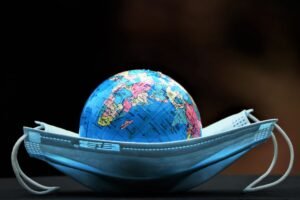
Sometimes we need to take people literally at their word. Not infer a metaphor, not assume an implication. But take them at face value.
The 2020 experience.
For a year that appeared on the horizon promising to take our breath away, it looks like we misread the memo. Not to be a naysayer, pessimist or any such thing, the year has literally attacked our breathing system - individually, corporately and collectively. This attack for mankind's lungs would eventually crystallize in George Floyd's gruesome murder, instigating the worldwide "I can't breathe" campaign.
Our world has suddenly become a smaller, largely scarier, and more delicate place to live in. On the whole, this has impacted us to the very core of our beings and our unified race. And its impact won't leave in a hurry. Family life, faith, work, existence and socialization will feel the ripple effects forever.
I compiled a list of things that may never go back to the way they were.
Parties and condensed areas. It's the age of Zoom weddings and Instagram Live Introductions. Would you have assumed that there would be such a time as this? Parties are still currently outlawed in most parts of the world, marketplaces are running on shifts, people are observing strict physical and social distancing. What a time to be alive. Even when this is over, the consciousness for personal space will stay etched in our consciousness.
Social places [eateries, restaurants, clubs and parks, cinemas]. Get your food and leave! You may eat in your car or drive all the way home if you can wait, but the government and food vendors are saying: please love us from a distance, we'll do the same. That love waxing cold isn't sure to get warm anytime soon. Netflix and similar subscription-based movie screening and streaming are the future. Football viewing centres will suffer reduced patronage as wave after wave of the virus continues. Even after we find a cure, I'd rather just enjoy home-screening, thank you very much.
The Finance Industry. Cash transactions will slowly bite more bullets. Fintech is the future of banking. Technology is the future of virtually anything, anyway. But in particular, more transactions will move to digital, non-cash, tech-based forms. The prudent banker needs to take the time to garner as much knowledge in this field as possible because it's almost fully buffered. During the strictest periods of the lockdown, we realised how little one needed cash for things that really mattered. Online ordering, subscriptions, ticketing and e-wallets ensured that we were all safe behind our phone and computer screens while the virus ravaged and rummaged outside.
Worship centres and rigid religious idiosyncrasies. Three months now, we've all been barred from going to religious places. Churches, mosques and other religious centres where it seemed like physical attendance was the only way to worship have found ways to keep the faith and spiritual consciousness unhindered and on point. I personally have had to review a lot of idiosyncrasies I had regarding a myriad of issues, and although I haven't lost my faith [I am a practising Christian], I have realised how flimsy, lightweight some of the rigid beliefs and approaches I had were. A lot has changed in me, as I'm sure they have in many. God isn't a figment of our imagination, neither a product of our rigid and unbending "if you don't believe what I believe you're doomed" approach. Faith is extremely personal, and although our experiences do influence others, they should by no means be the lens by which we grade their morality, holiness or uprightness.
Real estate. This is a big deal - particularly commercial real estate. Working from home has become a darling phrase during these times; perhaps only beaten to second place by 'Coronavirus or COVID-19'. Employers who were originally adamant, unwilling to even consider the possibility of remote work, are now clutching the concept very close to their chests. It took only a few weeks of COVID-19's merciless punches to humble them. Costs are being cut, cut, cut. This can only mean that even when we leave these dangerous times, employers need no external data - they know that over 80% of work they've always compelled physical presence for can be done remotely. Still sure you need that intended million dollar commercial real estate project? Think again.
Did I miss out on any?
Please let me know in the comments.
And don't forget to share.
______
Read some more of my writing here.
That time when Social Media died - for hours.
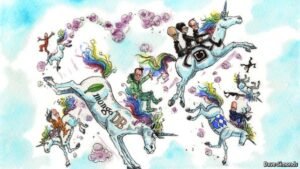
Social media died - for hours.
Talk about 'understanding the times.' Many picked the wrong time to set sail with their goods on Thursday, March 14 2019. Sh** hit the fan. All hell broke loose. Pandemonium ensued. The three largest Social Media platforms - Facebook, WhatsApp and Instagram [MarkVille] - went down for at least 8 hours. While users wondered what sort of iceberg hit their beloved vessels, many jumped ship and took to Twitter. Twitter, home of banter, the world's headquarters for the hottest gist and gossip welcomed them with open arms. FacebookDown and InstagramDown chants filled the air in the way of hashtags, and Twitter influencers had a filled day.
Home to a combined 4.8 billion users, there's no larger country anywhere in the world. Put simply, if Mark was a President and the subscribers to his SM products were citizens, he would lead a land bigger than China and India.
What was lost?
Millions of companies advertise on MarkVille. In fact, many live there predominantly. They advertise, take orders, ship, restock, run promotions entirely there. When the outage occurred, most running ads simply disappeared - or well, took on Ghost mode. They were running but weren't leaving footprints. You couldn't see them. Imagine all billboards and posters taken down all over cities, and all shops shut down. Businesses couldn't showcase their wares properly, and buyers couldn't see.
On WhatsApp, it wasn't as drastic. While you could still continue chatting with the love of your life, it was your voice notes and lovely videos that suffered. You'd have had better luck getting a stubborn cow on a boat.
What caused it?
A glitch. A server outage that's bound to happen if you run an economy so dynamic, so diverse. Amid the scramble to restore order back to their systems, MarkVille had to resort to its rival, Twitter, to explain that this was being worked on and the nightmare would soon pass.
What if it happens again - this time on a grander scale? What if not just a part, but all of social media dies for more than hours, but days, ever?
It's not a first. Not a second. And it is bound to happen again. Twitter itself is experimenting with a side product called Twttr in a bid to redesign, overhaul its product.
While liability falls like a lot all around laps for these technological glitches, how is your business preparing to meet uncertainty squarely in the field of future uncertainty?
It may seem highly unlikely - especially as the Worldwide Web hit 30 on 12 March 2019. Somehow, the internet has survived.
But what if some internet-esque electromagnetic pulse hit, and everything was shut down? Or an alien civilization struck and took out Earth's technology first?
Doomsday scenarios beg for emergency procedures.
What nasty and brutish times await?
Read some more of my writing here.
